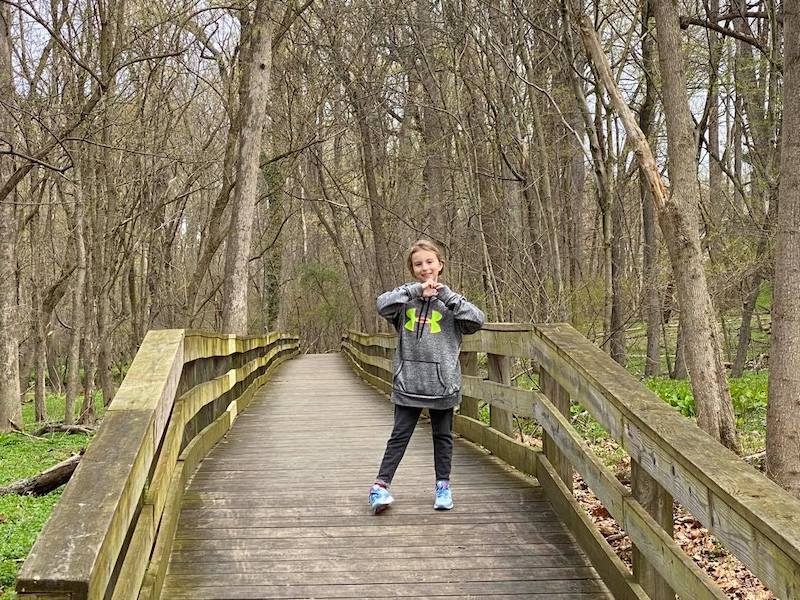As I write this we are preparing for the reality of our state going on lockdown in the wake of COVID-19 cases starting to escalate. I live in Maryland and we still don’t have enough test kits so the reporting and the reality of its current impact are different. My daughter is 8. Almost 9, if you ask her. Knowing that she has overheard many conversations with family members about what is going on, I wanted to take the time to talk to her directly and see what her thoughts are and what the reality of COVID-19 looks like through her eyes.
The day prior she showed some anxiety as she was worried she wouldn’t be able to keep our normal custody schedule with her Father when we go on lockdown, so I knew she has questions and concerns. I like to discuss important topics while out in Mother Nature with no potential for distraction. So we bundled up and went out for a nature walk. As we were walking I asked, “so do you have any questions about what is going on?” At first she said no. She often needs a minute to feel comfortable diving in. So we just kept walking. After a few more steps, she said, “so what is going on?”
I said, “Well there is a virus going around the planet that is very contagious. For most people it doesn’t get them very sick. But for some people it gets them really sick. And so we are going to be staying inside and limiting our contact with other people so we can do our part to keep it from spreading.”
I knew that it was important not to leave the conversation there, I neededto make sure I offered some form of hope and confidence. And it needed to be genuine. So I added this, “While we are staying inside all the world’s scientists, doctors, engineers, businesses and citizens are working together to find a vaccine and build medical equipment. This is the first time in our lifetime this has ever happened. I can see a realistic possibility of us finding the vaccine faster than we ever have. And it’s likely that over the next few months we’ll uncover other advancements in science and in medicine that we’ll be studying for a decade or more.”
She replied, “cool” and kept on walking. She didn’t ask me anymore questions about the virus, about our social distancing or about our increased food supply at home. She just walked, watched the animals and every once in a while came in for a hug. As parents, we have to take the time to explain what is happening to our children in ways that meet them where they are. The world just got a lot scarier for them. They can’t go to school. They can’t go outside and play with their friends. Their parents are consumed with managing the details of their new work from home environment, reprioritizing work almost daily and ensuring their home is provisioned for the short and long haul.
It is natural for children to feel unseen and scared right now. Give them your undivided attention at least once a day. Be direct and ask them if they have any questions. Meet them where they are and answer their questions honestly. Then show them the silver lining and reasons to have hope. Every great break down leads to a breakthrough. Your children are forming memories that will be anchored for a lifetime. This is an event. One we’ll look back and reflect on for decades. You can allow the story of COVID-19 to be the virus that shut down the world or it can be the catalyst for a breakthrough in medicine, in education and in global cooperation. Either way your children will mirror your perspective into their own experience. So be mindful of your perspective and make sure it’s one you’d actually want coursing through the mind of your beautiful child. And if it isn’t, shift it. Find your reason for hope and anchor it. Repeat it to yourself anytime a negative thought comes in and it will eventually stick. We are all in this together. We’ve survived the .com bust, 9/11 and the 2008 recession together. And we will get through this.
